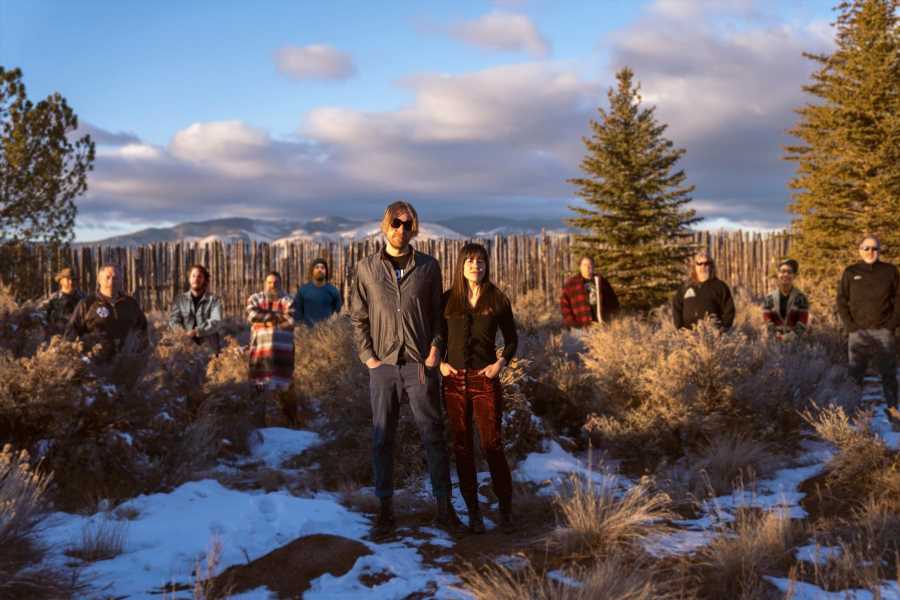The fight to secure federal funding for independent venues during the Covid-19 pandemic was remarkable on several fronts: Not only was it a rare bipartisan cause in an era of intense political polarization, but it came about thanks to a interconnected, but often disparate network of independent venues and promoters that united almost instantly at a moment of deep crisis. Now, after helping to secure the future of live independent music, a group of venues is offering up a new vision of the future.
D Tour is a new venture founded by indie venues and promoters in nine states, ranging from 200-cap clubs to 8,000-seat theaters. The group’s goal is to not only streamline the booking process for indie artists, but use that united front to help younger acts develop and reach bigger audiences on the road.
Related Stories
When Will Indie Venue Owners Get the Funding They Were Promised?
Senators Klobuchar, Cornyn Call on SBA to Speed Up Grants to Shuttered Venues
Related Stories

5 Festivals That Ended in Disaster
50 Best Action Movies of All Time
“Music fans and indie artists alike understand how critical their local independent venues and promoters are to their city’s live music ecosystem,” says Chris Cobb, a D Tour member who owns Nashville’s Exit/In and Bonafide Live, Inc. “The pandemic exposed the fragility of these ecosystems and broken aspects of the old systems. D Tour is a new model that offers independents a level of support they’ve never had. D Tour gives me confidence for the future of independents everywhere!”
D Tour will essentially function as an interdependent booking collective. Artists will have one point of contact while booking their shows, but individual members will bring key local knowledge to the process. Jessie Hartke, co-owner of Hartke Presents in Wichita, Kansas, explains that the goal is to not only ensure artists are playing the right venues, but that their shows are backed by the right promoters (D Tour will also be able to bolster local promotion with a united national campaign.)
Additionally, Hartke notes that while D Tour will function as a collective, the revenue generated from individual shows will stay in those markets, “further strengthening local businesses and local music scenes.” Shows, she adds, will be produced independently too, allowing for “a deeper understanding of each market, ultimately benefiting the artists, the fans, local communities, and all involved in the show.”
Multi-instrumentalist Elise Trouw, who will hit the road in support of her upcoming album, will be the first artist to test out the D Tour model. The process so far, she says, has been extremely efficient: All her offers arrived on a single form and the deals for the various venues were largely similar; efforts to plan past tours, she notes, were marked by a much more “piecemeal approach.”
“It feels like there will be much more attention to detail for the tour,” Trouw adds. “The network of venues are already holding regular calls to discuss planning and marketing. These calls will continue through the tour and if there’s anything we learn from shows I’ve played, those ideas will be communicated to the remaining venues so that we are all on the same page and improving as we go.”
Ultimately, D Tour’s mission is to fashion a future for live independent music that is, yes, profitable, but more importantly, collectively sustainable for both venues and artists. The wide support independent venues received in the thick of the Covid-19 pandemic spoke to how crucial these spaces are in the live music ecosystem, nurturing artists as they graduate from clubs to theaters to arenas.
It’s that aspect — artist development — that most excites D Tour member Tobi Parks, owner of the 250-cap XBK Live in Des Moines, Iowa. “Our indie venues have always been the breeding ground for the next generation of professional artists,” she says. “By working together, we have the ability to break artists through our network of indie rooms and help artists in our own communities build a nationwide platform and launch careers as touring artists. We are able to break down the traditional power structures and build a network of support to nurture rising talent. I think we’ll see artists that may have only been locally successful find larger regional and national success through the efforts of D Tour.”
Source: Read Full Article
